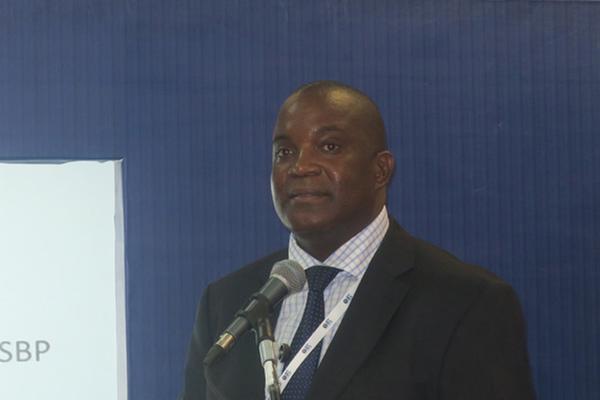Belt and Road Initiative boosts Africa's infrastructural connectivity
By Lucie Morangi | chinadaily.com.cn | Updated: 2017-05-16 16:51
 |
| Amos Phiri, a transport infrastructure expert at the New Partnership for Africa's Development (NEPAD), an African Union technical body, says China is supporting Africa's infrastructure projects. [Photo by Lucie Morangi/chinadaily.com.cn] |
Abuja, Nigeria - China's Belt and Road Initiative is pushing forward Africa's ambition to achieve connectivity through infrastructure expansion, a transport expert says.
Amos Phiri, from the New Partnership for Africa's Development (NEPAD), an African Union technical body, said China's initiative aligns well with the continent's objectives of sustainable economic growth and regional integration. He was speaking on the sidelines of an infrastructure summit in Abuja, Nigeria.
The two-day summit, jointly hosted by Africa Finance Corporation and NEPAD, has brought together public and private sector players to increase visibility of mega-infrastructure projects that are ready for financing.
Phiri highlighted several transport and energy projects under the Program for Infrastructure Development in Africa (PIDA) that have received overwhelming support from China. He added that despite showcasing projects that are still relatively new, previous partnerships with Chinese firms buoys confidence of a quick uptake and implementation by foreign investors.
He observed that several PIDA projects have also been articulated under the Belt and Road Initiative, complementing Africa's infrastructure ambitions. "A good example is the Mombasa-Nairobi standard gauge railway in Kenya that has been partly financed and fully developed by the Chinese," he said.
He revealed that the continent is pursuing innovative strategies to increase the uptake of selected projects while shortening project delivery cycles. This means strengthening capacity of institutions, promoting transparency in the procurement process and building strong mechanisms for engaging private players to ensure that interests are mutually aligned.
"I believe that Africa needs to pursue new models for risk mitigation to fast-track project implementation. We are aware that some governments are considering unsolicited bids and thus we are launching a deliberate effort to actually support them manage this strategy. We are targeting both the project sponsors and regional economic communities to enable their abilities in making informed decisions."
The strategy will not only accelerate the delivery of critical infrastructure but also increases public buy-in by eliminating suspicion dogging projects undertaken under this model.
If successful, the strategy promises to unlock Chinese investment in Africa's booming infrastructure sector as this strategy has been used before to clinch major deals.
"Currently governments are poorly equipped to manage agreements under public-private partnerships or unsolicited bids. We plan to train personnel working under relevant agencies who will then create public awareness and increase buy-in and participation from the public," Phiri said.
The infrastructure summit enters its final stage today when high-level government officials and industry captains articulate how Africa plans to tackle its budget deficit while pushing forward infrastructure expansion.
























